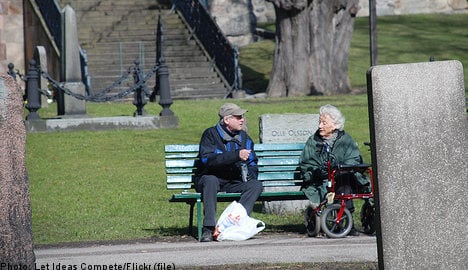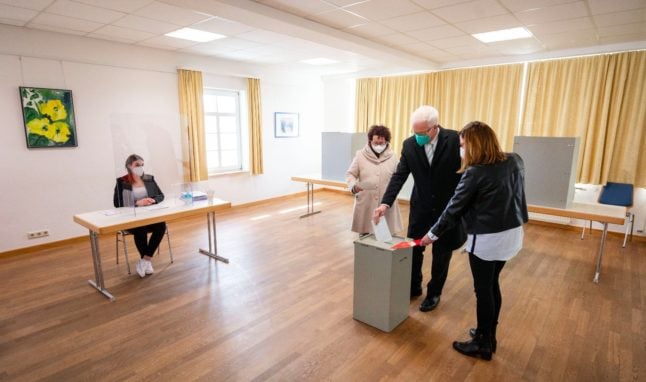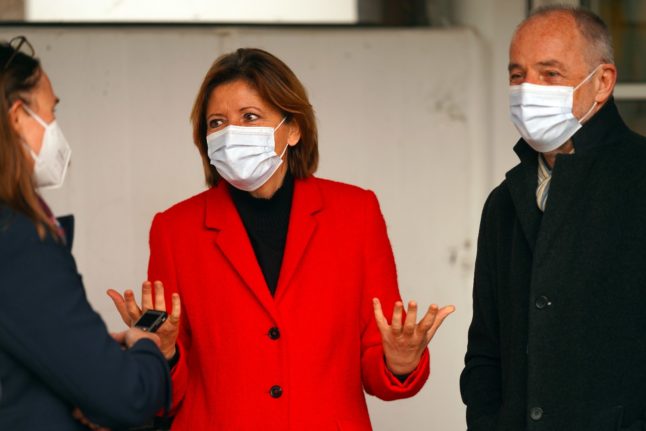Both the ruling centre-right coalition and the left-leaning opposition have vowed to boost the quality of life for older citizens.
“It’s a rather simple mathematical calculation,” Göran Eriksson, political analyst at newspaper Svenska Dagbladet, told AFP.
“At the moment, 1.7 million voters are retired” out of more than seven million potential voters, he said, “and in the coming four years, large numbers of people will be leaving the labour market,” as the population ages.
He stressed the elderly also tend to “honour the duty of voting. You can be sure that they will actually vote.”
Pensioners, who even have their own — albeit tiny — party, are also good at getting their message across, Peter Esaiasson, a political scientist at Gothenburg University, told daily Dagens Nyheter.
“Young people’s organisations are not as skilled at organising and not as skilled at pushing their issues,” he said.
Unlike many other European nations where the economic crisis has led governments to slash benefits and push back the retirement age, Sweden’s economy is strong enough to sustain new pledges of tax cuts and beefed-up benefits to retirees, analysts and economists say.
Sweden was hard-hit by the global financial crisis, but emerged from recession in the second quarter of 2009 and is now considered the top-performing economy in the EU.
The ruling coalition, made up of Prime Minister Fredrik Reinfeldt’s Moderates and the Liberal, Centre and Christian Democrat parties, has said it wants to lower pensioners’ income taxes by 7.5 billion kronor ($1.02 billion) next year.
Meanwhile, the so-called Red-Green opposition of the Social Democrat, Green and formerly communist Left parties has vowed to slash pensioners’ income taxes by 10 billion kronor as early as next year.
The opposition has also pledged to lower the maximum fee for hired help at home and ensure easier access to such services, and to fund activities in retirement homes.
“The Red-Greens are promising the most,” Eriksson said.
The nationalist Sweden Democrats have also latched on to idea in an attempt to win more than four percent of the vote and enter parliament for the first time.
It has promised “a Sweden where the older generation can enjoy the fruits of the welfare society it has helped build up,” vowing massive tax cuts for the elderly and secure retirement homes.
The party has also put pensioners at the centre of a controversial campaign ad, which shows a race in the dark between an elderly woman and a group of women in burqas pushing prams.
The slogan of the ad, which was modified after a private network refused to air the original, promised to safeguard pension funding at the expense of immigration.
One of the reasons pensioners’ income tax is such a hot topic, Eriksson explained, is that the centre-right government won the last election by promising to slash taxes for workers, but left the pensioners out of its widespread cuts.
Already in the 2006 campaign, the Left branded the tax cuts for workers a “pensioners tax,” although the term did not really catch on before this year’s election race.
“Now it has become a major political issue,” Eriksson said.
Tax cuts and other benefits are not the only themes that could sway the elderly’s vote, warned Marie-Louise von Bergmann-Winberg, a professor of political science at Mid Sweden university.
“Pensioners are not a homogenous group,” she told AFP, pointing out that many retirees were home owners who could shy away from the opposition even though its promises to them are more generous because it has proposed a significant real estate tax increase.
Retirees are also a group that values security and stability, she said, and the government’s perceived navigation of the global economic storm could play in its favour.
“For pensioners, security and continuity can trump ideology,” she said.




 Please whitelist us to continue reading.
Please whitelist us to continue reading.
Member comments